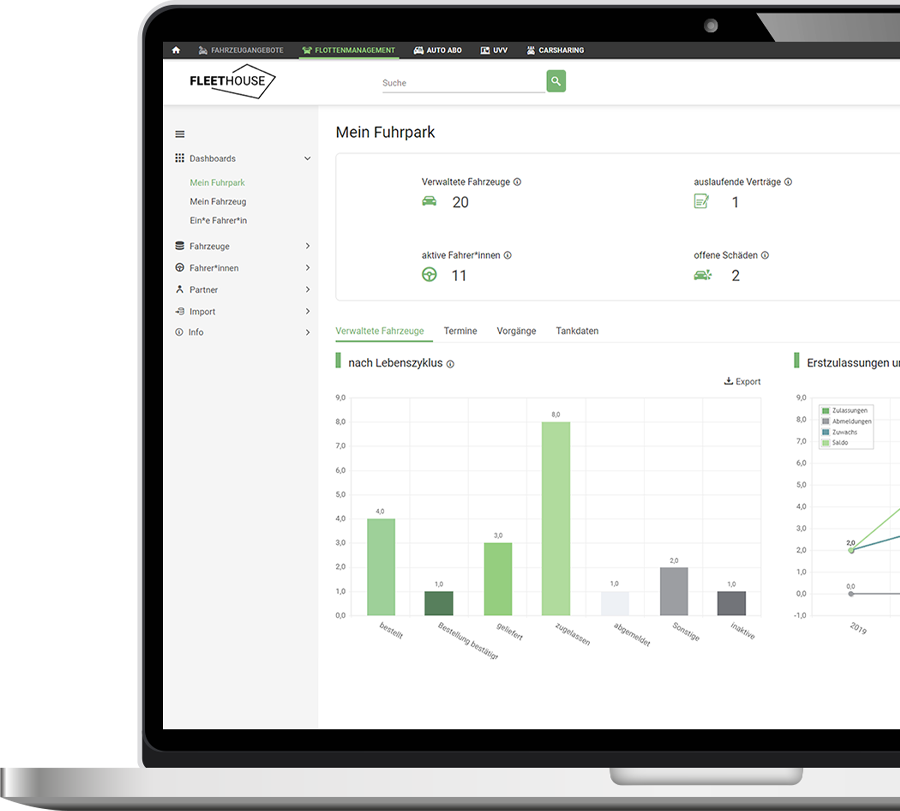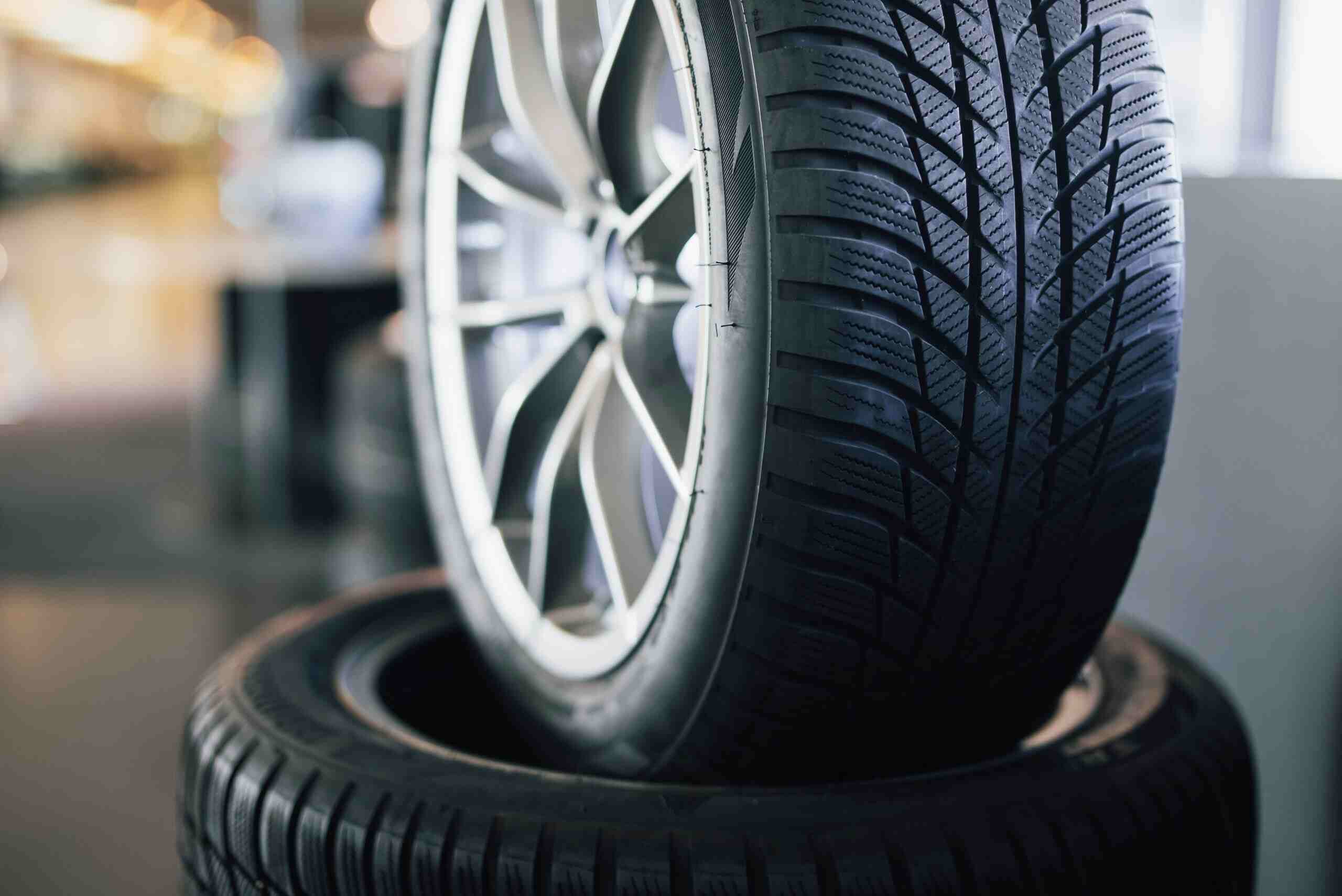Tire management in the fleet is a key issue for fleet managers. This is not only about saving fuel costs and working time, but also about the safety of all road users. Tires can quickly become a cost driver in the fleet. Incorrect handling and inadequate maintenance result in avoidable additional costs. You should not cut corners here. Even simple measures can make a big difference to tire management.
The costs for tires account for around three to five percent of the total operating costs in the fleet. If other factors such as fuel consumption and administrative costs are also taken into account, the proportion of costs is significantly higher. A study by the German automobile club ADAC comes to the conclusion that a costly puncture can be expected approximately every 150,000 kilometers. If regular maintenance is an integral part of tire management, major damage can easily be avoided.
Contents
What is tire management?
Tire management includes the selection of suitable tires, regular checks and maintenance as well as the legally required changing of summer and winter tires. According to §36 StVZO, the regulations regarding tires, tread depth and the type of tires must also be observed. Within the scope of owner liability, tire management is one of the tasks of fleet managers. In addition to complying with legal requirements, they are also responsible for vehicle safety and cost optimization.
Professional tire management in detail
The optimum tire pressure
The correct tire pressure reduces fuel consumption by up to 30 percent. In addition, the optimum amount of air promotes even tire wear, which reduces wear and makes it easier to retread the tires. The air pressure should be checked every month on cold tires before setting off. Company car users can play an active role here. But beware: If the tire pressure is too high, wear increases and the handling and damping of the tires deteriorate. Information on the optimum air pressure can be found in the respective operating instructions.
The right tread depth
Penalties and fines can be avoided if worn tires are replaced in good time. In deviation from the minimum tread depth of 1.6 mm for passenger cars specified in Section 36 (3) of the German Road Traffic Licensing Regulations (StVZO), experts recommend replacing summer tires at 3 mm and winter tires at 4 mm tread depth. Leasing companies may stipulate a different minimum tread depth.
Special tire types
Run-flat tires are a sensible investment with practical advantages. According to the manufacturer, it can still cover around 250 kilometers if damaged. Drivers can easily reach their destination or the nearest tire repair shop despite a puncture. Run-flat tires also make the spare wheel superfluous and free up more space in the trunk. As the vehicle is then lighter overall and less load is exerted on the brakes, fuel consumption is reduced. Special tires are a good choice for unusual fleet vehicles. Off-road or SUV tires are therefore ideal for off-road sedans.

The right tires for electric vehicles
With hybrid and electric cars, it is essential to ensure that the tires are correct. Tires for electric vehicles are adapted to the higher weight of the battery and the high torque when starting off. Both lead to faster wear on conventional tires. Problems then become noticeable during acceleration and when cornering due to the generally higher cornering speed. Special tires for electric vehicles take the high vehicle weight into account and achieve lower rolling resistance thanks to a different tire structure and an adapted rubber compound. This can increase the range of electric cars by up to seven percent. The more noticeable rolling noise of the tires can also be reduced in this way.
Summer and winter tires
The use of summer and winter tires is associated with effort. Timely procurement, scheduled replacement, checking the tread depth and excessive wear must be continuously monitored. Switching to all-season tires provides relief here. The seasonal changeover is no longer necessary and with it the time pressure to change vehicles in certain time windows. All-season tires are becoming increasingly popular and can be used in many areas of Germany with a clear conscience. However, for frequent drivers who attach great importance to an optimum mix of safety, performance and economy, summer and winter tires are still the first choice for company vehicles.
A good solution: outsourcing tire management
In addition to regular maintenance, tire management also includes the selection, procurement, fitting, storage and disposal of tires. Without external support, this is difficult for companies with a large fleet to manage, as they simply do not have the capacity. Outsourcing tire management and tire monitoring to a specialized tire service provider reduces administrative costs, achieves better purchasing conditions, benefits from additional expertise and has more time to concentrate on their own core competencies. If you don’t want to hand over tire management completely, you can also have the provider cover only individual areas. With full-service leasing contracts, tire management is often completely outsourced.
If tire management remains in the hands of the company, good time planning is the be-all and end-all. Buying tires early and taking advantage of seasonal offers can save a lot of money. It is also important to plan and carry out tire changes in good time in order to optimize vehicle downtimes. If you want to work with a local authorized workshop, you should ensure that it can react quickly and flexibly to a wide range of requirements at all times. It is also important to clarify whether the garage is qualified to work on electric vehicles or to change special tires for specific vehicle brands.
Fleet Management
Organize all tasks relating to your vehicles, including tire management, with Fleethouse.

Digital support: top tires thanks to fleet management software
More and more processes are being digitized today, including tire management. Tire orders are placed online, storage reports are made available electronically, tire inspection appointments are managed online and invoices are also processed electronically. Fleet management software can provide reliable support here in order to present the complex processes relating to the vehicle in a clear and analyzable way, to map the digital processes simply and to set up fleet management more cost-efficiently. Last but not least, the fleet software also contributes to a tailor-made tire management concept.
Our conclusion
As unimportant as tire management may seem at first glance, flawless tires are essential for the safety, comfort and efficiency of the vehicles in the fleet. For larger fleets, it makes sense to outsource tire management to a service provider. This not only saves time and money, but also prevents legal consequences. Fleet management software helps to monitor all processes.
The most important facts about tire management in the fleet at a glance
Tire management is not only about saving fuel costs and working time, but also about the safety of everyone on the road.
Outsourcing tire management to a specialized tire service provider reduces administrative costs, achieves better purchasing conditions and benefits from additional expertise.
Fleet management software presents the complex processes relating to the vehicle in a clear and evaluable manner and supports tire monitoring.
Further Fleet Knowledge
If you liked this article and would like to know more about this topic, we recommend these articles.

Fleet insurance for your vehicle fleet: this is what matters



